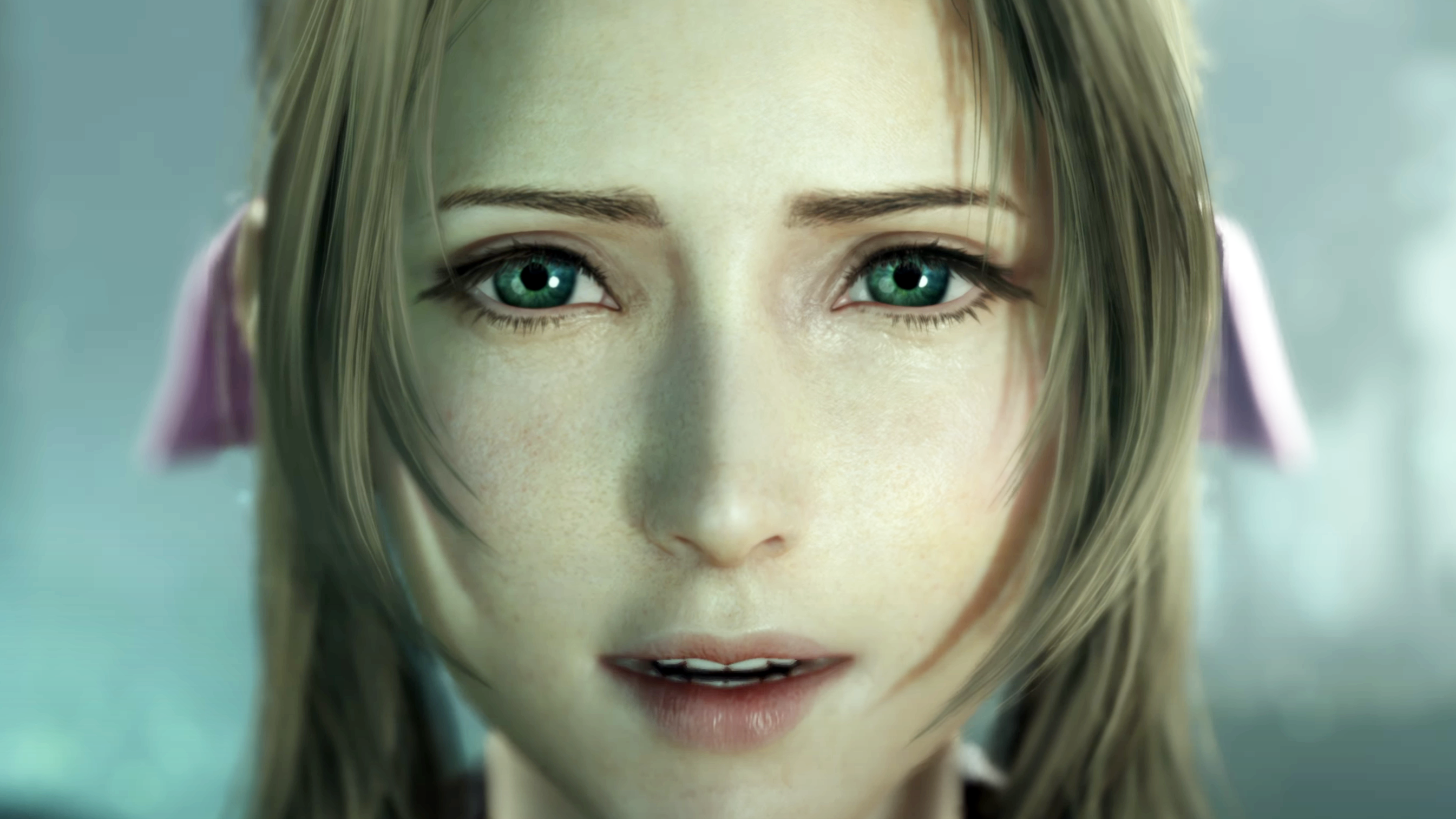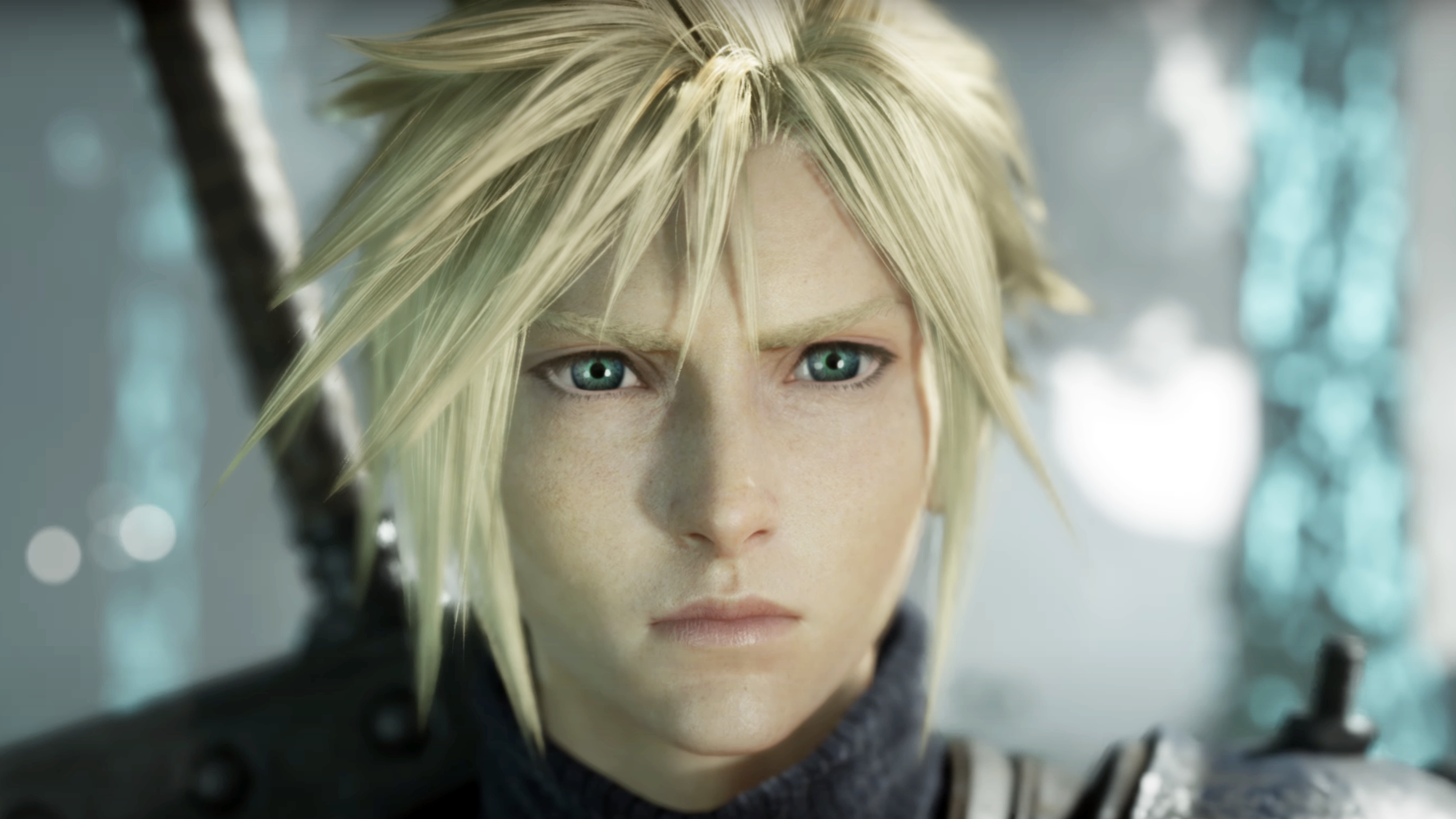Despite Final Fantasy 7 Rebirth not having a concrete PC release date, it's just shot right to the top of my 2024 wish list for one hella big reason
In the darkest of times, a hero from the past emerges.

Like I'm sure many other PC gamers have done, I read our Suicide Squad: Kill the Justice League review with a sense of inescapable inevitability and frustrated, profound disappointment.
Here we are again, another previously celebrated game developer seeing its reputation tarnished by a flawed, middling game-as-a-service release that places grind and ongoing play/monetization right at the top of what a video game should be, with everything else (storytelling, character development and depth, an interactive and varied world, reactivity, the list goes on) relegated to also-rans.
It's like Redfall all over again. Yes, sure, Suicide Squad may not plumb Redfall's depths in terms of flaws and compromised, muddled gaming experience, but while in the past Arkane and Rocksteady Studios were shining exemplars of how to carry gamers along on cinematic, emotional and story-packed adventures, all the while delivering excellent varied gameplay mechanics, now both studios feel markedly diminished by, from my point of view at least, being sucked into the game-as-a-service zeitgeist.
This is why Final Fantasy 7 Rebirth, despite not officially having a concrete release date on PC yet (although this summer looks likely), is now planted right at the very top of my 2024 gaming wishlist. Why? Rebirth is the perfect counterpoint to the game-as-a-service plague currently infesting games. Here is a massive (in content, not grind; the game comes on TWO discs) cinematic gaming experience that places a phenomenal weight on storytelling and in-game character development and relationships, as well as providing gamers incredible variety of gameplay at the same time.
Just take a watch of the brand new Final Fantasy 7 Rebirth state-of-play below to get a flavor of this:
It's almost not surprising that it takes a remake of a decades-old game to really show what we're slowly losing right now as the all-powerful god of continuous monetization creeps over the game development landscape. Anyone who has played Final Fantasy 7 Remake, which I did on release, will already know this new remake trilogy of FF7 games offers a fantastic gaming experience, one that PC Gamer gave a stonkingly good score of 88 per cent in our Final Fantasy 7 PC Remake review, and one that is designed to played and, yes, finished.
I've not replayed FF7 Remake at all since originally finishing the game but, guess what? I came away from that lengthy and engaging story incredibly satisfied. I'm now waiting, cash in hand, eagerly anticipating buying Rebirth on day one. Why? Because Remake (like Rebirth and the unannounced third game in the trilogy also look certain to do) leant on the gaming pillars that I put huge weight on, such as immersing me in cinematic storytelling and carrying me along on a hand-crafted, varied and detailed adventure where my whole purpose isn't to watch numbers on a weapon go up a bit, before then reliving the same gameplay to watch those numbers go up just a little bit more.
The biggest gaming news, reviews and hardware deals
Keep up to date with the most important stories and the best deals, as picked by the PC Gamer team.

Look, I do get why publishers will look at the game-as-a-service model and be very tempted. If you get it right and deliver a hit game that attracts and then maintains a passionate community of gamers, then you can make incredible amounts of money. There absolutely are success cases here. However, first and foremost game-as-a-service hits are so because they are fundamentally good games to begin with. That's a key point, right? Like all gamers, I only ever want to replay games if, you know, they're actually fun to play. Redfall definitely wasn't, and Suicide Squad seems to be only in limited areas. What's more, you don't have to have a game-as-a-service model to get great replayability built into your game.
I also see that making big-budget games is arguably more difficult and riskier than ever in 2024. Just look at how the traditional action-RPG Forspoken flopped hard last year (although, leaning back on my aforementioned point, that was just a very middling game), no doubt costing Square Enix plenty of money in the process, and while I'm here championing Final Fantasy 7 Rebirth as the hero of the hour, its publisher (also Square Enix) has just been reported as having flat sales through the first nine months of the fiscal year. It's clearly really tough right now for most publishers in the video game industry and there is no magic bullet to guarantee success.
But, as Larian Studios showed last year with Baldur's Gate 3, traditional gaming genres and, even more importantly, approaches to making games for those genres that focus on character, story and immersive gameplay first and foremost, can make incredible bank at the gaming box office. I, like hundreds of millions of other gamers around the world, will hand over money immediately if Baldur's Gate 3 DLC is announced. We're desperate to give Larian money, desperate, and we don't need a game-as-a-service model to feel that way and open our wallets.
After playing and loving Remake, I'm also desperate to hand over my money for Rebirth, too, and here's hoping it's a financial success, as that will in turn hopefully provide even more evidence that the future of gaming doesn't need to be 95 per cent game-as-a-service releases.
Rob is editor of PC Gamer magazine and has been PC gaming since the early 1990s, an experience that has left him with a life-long passion for first person shooters, isometric RPGs and point and click adventures. Professionally Rob has written about games, gaming hardware and consumer technology for almost twenty years, and before joining the PC Gamer team was deputy editor of T3.com, where he oversaw the website's gaming and tech content as well its news and ecommerce teams. You can also find Rob's words in a series of other gaming magazines and books such as Future Publishing's own Retro Gamer magazine and numerous titles from Bitmap Books. In addition, he is the author of Super Red Green Blue, a semi-autobiographical novel about games and gaming culture. Recreationally, Rob loves motorbikes, skiing and snowboarding, as well as team sports such as football and cricket.

